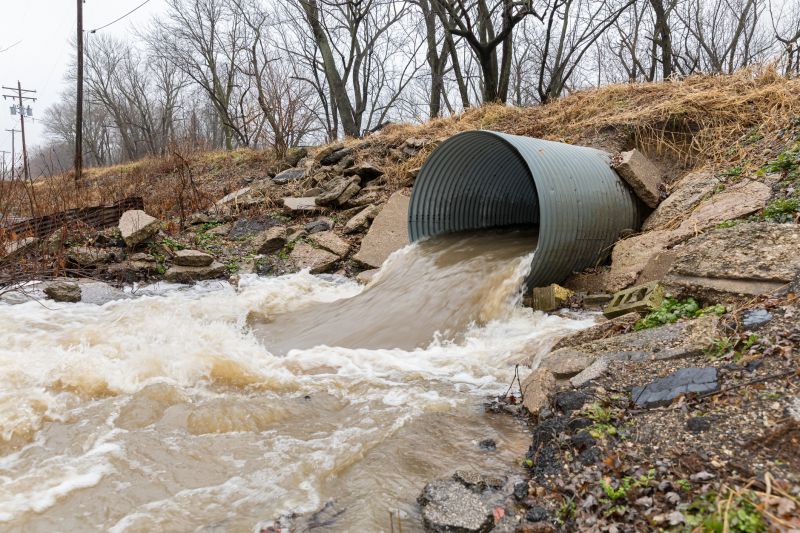Favorite Culvert Installation Tools and Materials for Contractors
Get insights into the most recommended culvert installation products used by professionals across various construction sites.
 Culvert installations are essential components in managing water flow across various landscapes, including roads, driveways, and agricultural fields. Selecting the appropriate products for culvert installation involves understanding the different types of pipes and accessories available to ensure durability and proper function. Common materials include corrugated metal, high-density polyethylene (HDPE), and reinforced concrete, each offering unique advantages based on the application and environmental conditions. Proper installation not only extends the lifespan of the culvert but also ensures safety and effective water management.
Culvert installations are essential components in managing water flow across various landscapes, including roads, driveways, and agricultural fields. Selecting the appropriate products for culvert installation involves understanding the different types of pipes and accessories available to ensure durability and proper function. Common materials include corrugated metal, high-density polyethylene (HDPE), and reinforced concrete, each offering unique advantages based on the application and environmental conditions. Proper installation not only extends the lifespan of the culvert but also ensures safety and effective water management.
Top Overall Option
High-Density Polyethylene (HDPE) Culvert Pipe
HDPE culvert pipes are known for their flexibility, corrosion resistance, and ease of installation. They are suitable for a wide range of applications, including roadway crossings, drainage systems, and agricultural projects. Their lightweight nature facilitates handling and reduces installation time, while their durable construction ensures long-term performance in various soil and weather conditions.
Types of Products For Culvert Installations
Corrugated Metal Pipes
These pipes are widely used for their strength and durability in heavy load situations, often suitable for road crossings and large-scale drainage projects.
Reinforced Concrete Pipes
Concrete pipes provide high structural integrity and are often chosen for their longevity and ability to handle substantial loads.
High-Density Polyethylene (HDPE) Pipes
Flexible and corrosion-resistant, HDPE pipes are popular for various drainage and culvert applications.
Polypropylene Pipes
Known for chemical resistance and lightweight properties, suitable for specific environmental conditions.
Aluminum Culvert Pipes
Lightweight and resistant to corrosion, often used in temporary or lightweight installations.
Flexible Plastic Corrugated Pipes
Ideal for quick installation and flexible routing in less demanding applications.
Precast Concrete Arch Culverts
Prefabricated arch-shaped concrete structures suitable for crossing water bodies and uneven terrains.
Composite Culvert Systems
Combining materials like concrete and plastic for specialized performance and installation flexibility.
Reinforced Plastic Pipe (RPP)
Offers high strength and corrosion resistance, suitable for challenging environments.
Inflatable Pipe Liners
Temporary or emergency solutions that can be inflated inside existing pipes to restore flow capacity.
Popular Choices
Commonly used for its robustness and ability to handle heavy loads in roadway applications.
Favored for its lightweight and corrosion-resistant properties, suitable for various drainage needs.
Selected for its strength and long-term durability in large-scale infrastructure projects.
Popular for quick and adaptable installation in less demanding environments.
Often chosen for crossing water features or uneven terrain due to ease of installation.
Lightweight and resistant to corrosion, suitable for temporary setups or lightweight loads.
Known for chemical resistance and ease of handling, used in specialized applications.
Offers a combination of strength and corrosion resistance for demanding environments.
Useful as a temporary solution for restoring flow capacity within existing pipes.
When considering culvert products, factors such as pipe diameter, wall thickness, load capacity, and resistance to environmental stressors play a crucial role. For instance, larger diameter pipes are suitable for high-volume water flow, while thicker walls provide additional strength for heavy loads. Accessories like end sections, bedding materials, and reinforcement mesh can enhance the stability and longevity of the installation. It is also important to evaluate the ease of installation and compatibility with existing infrastructure to minimize project time and costs.
Ensuring the right product selection can mitigate issues such as erosion, blockages, and structural failure over time. Consulting with professionals or following manufacturer guidelines can help determine the best options for specific site conditions. Proper planning and use of high-quality products contribute to a successful culvert project that meets safety standards and performs reliably under varying environmental influences. Investing in the appropriate products and accessories is a key step toward a durable and efficient culvert system.
Key Buying Considerations
- Determine the expected water flow volume to select an appropriately sized pipe.
- Assess the load-bearing requirements based on traffic or machinery weight.
- Consider the material's resistance to corrosion, especially in moist or chemically active environments.
- Evaluate installation ease and whether specialized equipment or expertise is needed.
- Check compatibility with existing infrastructure and site conditions.
- Review the pipe's durability and expected lifespan in the given environment.
- Identify the need for accessories such as end sections, bedding, or reinforcement mesh.
- Consider future expansion or modifications when choosing pipe dimensions and materials.
- Ensure compliance with local codes and standards for culvert installations.
- Factor in transportation and handling requirements based on pipe weight and size.
- Investigate the availability of replacement parts or accessories for maintenance.
- Analyze the environmental impact, including resistance to biological growth or debris buildup.
- Review manufacturer specifications for maximum load capacity and installation guidelines.
- Think about the overall project budget, balancing quality and cost-effectiveness.
- Consult with professionals or engineers for complex or large-scale projects.
This content includes affiliate links and may earn a commission at no additional cost to you.
